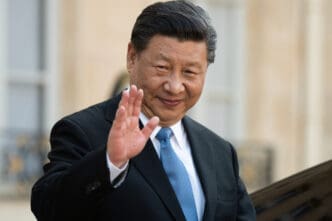Executive Summary
The Story So Far
Why This Matters
Who Thinks What?
A recent call between President Donald Trump and Chinese President Xi Jinping failed to finalize a deal for TikTok’s US operations, but Xi signaled China’s approval for the plan, contingent on broader concessions from the United States. Beijing appears to be leveraging the popular video app to secure more significant economic and trade agreements, despite a US law specifically precluding cooperation on content recommendation algorithms.
Negotiations and Conditions
President Trump claimed on Friday that he and Xi had “approved the TikTok deal” after a nearly two-hour discussion. However, Beijing’s readout offered a more measured tone, stating Xi expressed a willingness to see “productive commercial negotiations” leading to a solution that aligns with Chinese laws and interests, while also taking into account the interests of both sides.
According to the Chinese Foreign Ministry’s readout, Xi also asked the US to “refrain from imposing unilateral trade restrictions” and to “provide an open, fair and non-discriminatory environment for Chinese investors.”
Strategic Leverage
Analysts suggest China’s apparent flexibility marks a strategic shift, utilizing TikTok as a bargaining chip rather than bowing to pressure. This approach aims to extract concessions such as eased semiconductor export controls, reduced investment restrictions, and potentially lower tariffs on Chinese goods.
Brian Wong, an assistant professor at the University of Hong Kong, noted that Beijing has “deftly leveraged an app that matters much less to its political establishment than it does the MAGA movement core to secure concessions.” Similarly, Yun Sun, director of the China Program at the Stimson Center, suggested Beijing now sees an opportunity to improve US-China relations, making TikTok a negotiable issue.
China, which once decried a forced TikTok sale as “daylight robbery,” is now portraying the potential deal as “mutually beneficial.” The official Communist Party mouthpiece, the People’s Daily, emphasized principles of “mutual respect, peaceful coexistence and win-win cooperation.”
The Algorithm: A Key Sticking Point
The “framework” agreed upon by the US and China in Madrid this week reportedly covered “reducing investment barriers and advancing relevant economic and trade cooperation.” Chinese officials and state media indicate Beijing intends to retain ownership of TikTok’s core asset: its proprietary content recommendation algorithm.
This stance raises questions about compliance with US law, which explicitly prohibits any cooperation concerning the operation of such algorithms. The algorithm is widely considered the “secret sauce” behind TikTok’s global success, attracting 170 million Americans and over 1.5 billion users worldwide.
Trey McArver, co-founder of Trivium China, highlighted that “the red line for the Chinese side has been the algorithm,” viewing its sale as an unacceptable act of bullying and seizure of a prized asset. Wang Jingtao, a deputy director of China’s Cyberspace Administration, indicated that the deal could involve entrusting the operation of US user data services and licensing algorithms rather than an outright sale of the core technology.
Trump’s Evolving Stance
President Trump’s current interest in TikTok stands in contrast to his previous efforts to ban the app during his first term. He has since extended the ban deadline multiple times, crediting the app with helping him connect with young voters in last year’s presidential election.
Outlook
The ongoing negotiations over TikTok’s US operations underscore a complex interplay between commercial interests, national security concerns, and geopolitical strategy. While President Trump seeks a resolution for the popular app, China appears determined to use its approval as leverage for broader economic gains, particularly concerning the app’s valuable algorithm.








